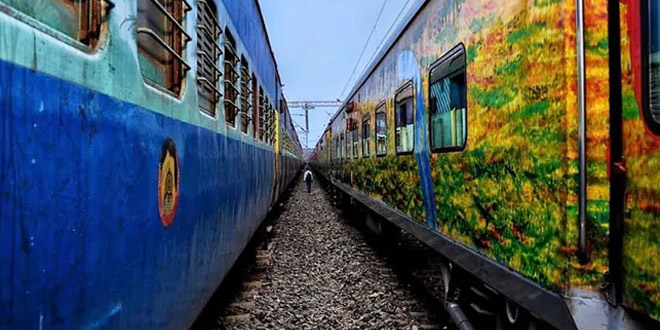New Delhi: In a first, railways is set to build reservoirs in its bullet train depots to store rainwater which would be used in the maintenance of the high-speed trains, the National High Speed Rail Corporation Limited (NHSRCL), implementing agency for the project, said on Tuesday (July 30). The move comes at a time when parts of the country are reeling under a severe water crisis. The railways’ plan for its high-speed corridor between Mumbai and Ahmedabad is to create self-sufficient depots at Sabarmati and Surat in Gujarat and Thane in Mumbai so that water need not be sourced from outside.
The water requirement of the depots will be met by the reservoirs made within the depot area. Rainwater will be fed into these reservoirs and treated through the treatment plants established in the depot. Recharge pits will also be made for recharging water back to the earth, said Sushma Gaur, spokesperson, National High Speed Rail Corporation Limited (NHSRCL), the implementing agency of the bullet train project.
All railway depots have rainwater harvesting pits to store water. Generally, about 12,000 to 14,000 litres of water is used for cleaning one rake consisting of 22-24 rail coaches. The Sabarmati depot will be the largest or the ‘mother depot’ with an area of about 80 hectares. It will have state-of-the-art equipment for regular maintenance of trains with inspection bays, washing plants, workshops, sheds and stabling lines.
The operation control centre for the Mumbai-Ahmedabad line will also be housed in this depot, the spokesperson said. Thane depot will spread over an area of about 60 hectares and will have similar facilities for the upkeep of the trains, she said.
Another functional depot is being planned in Surat with an area of 44 hectares. This depot will receive trains from Japan and have basic facilities for train maintenance. The depots are being designed based on the experience of Sendai and Kanazawa depots of Shinkansen in Japan, the spokesperson said.
Facilities for recycling and re-use of effluent and sewage water will also be established in depots at Thane and Surat, she said, adding bio-waste from trains will be collected in the trains itself and will be segregated and treated in the depots through sewage treatment plants. The national transporter has already taken measures to reduce its water requirements. It has also been decided to set up automatic coach washing (ACWP) plants at 10 major depots to save water required for cleaning trains. ACWP will be equipped with an effluent treatment system and water softening plant for recycling water used for cleaning trains and platforms.
Also Read: Indian Railways Brings Back Kulhads, Replaces Plastic With Clay Products
NDTV – Dettol Banega Swachh India campaign lends support to the Government of India’s Swachh Bharat Mission (SBM). Helmed by Campaign Ambassador Amitabh Bachchan, the campaign aims to spread awareness about hygiene and sanitation, the importance of building toilets and making India open defecation free (ODF) by October 2019, a target set by Prime Minister Narendra Modi, when he launched Swachh Bharat Abhiyan in 2014. Over the years, the campaign has widened its scope to cover issues like air pollution, waste management, plastic ban, manual scavenging and menstrual hygiene. The campaign has also focused extensively on marine pollution, clean Ganga Project and rejuvenation of Yamuna, two of India’s major river bodies.
























